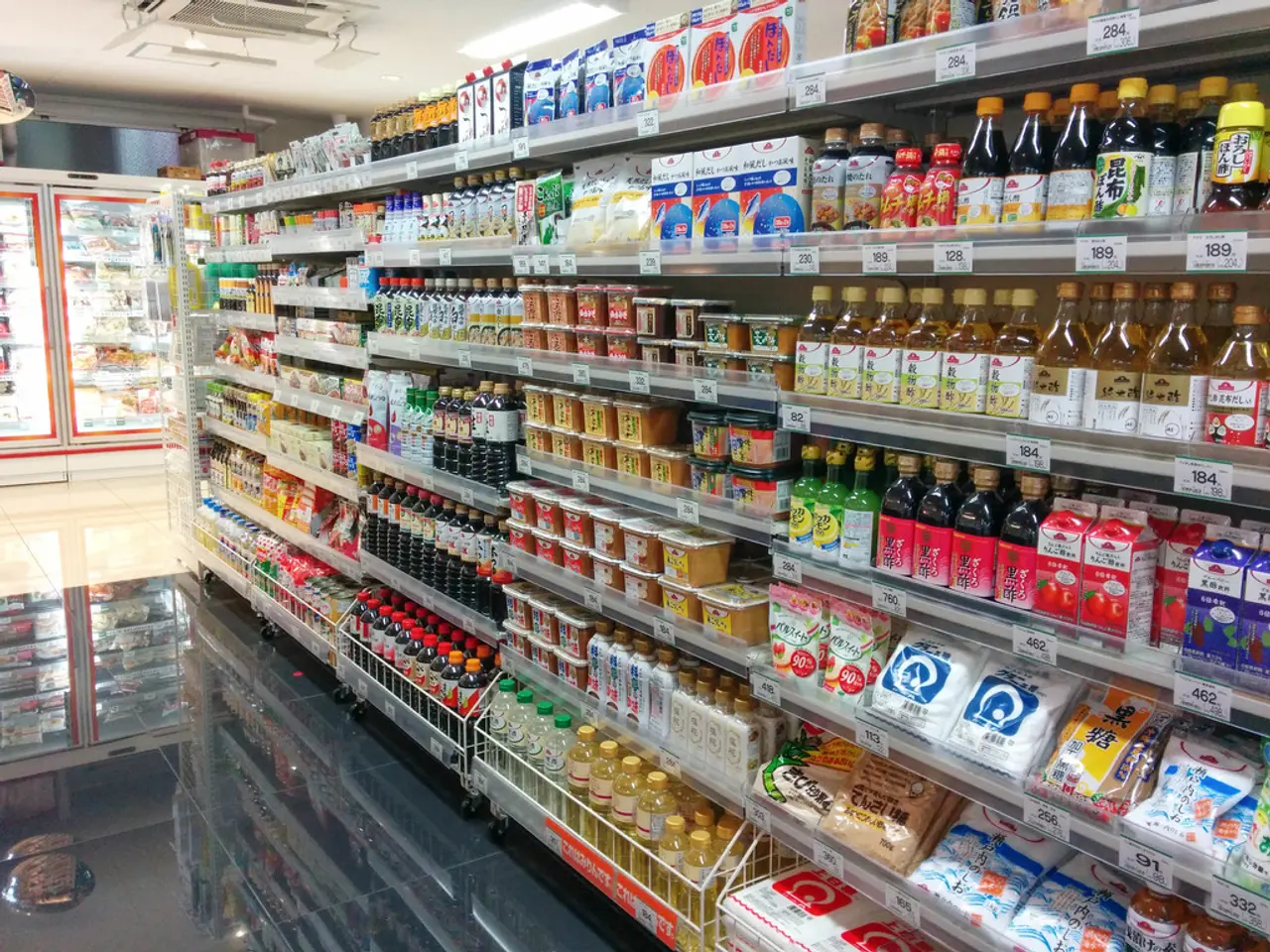Nestlé workers confront eight significant construction locations
In a dramatic turn of events, Swiss multinational food and beverage giant Nestlé has seen a significant decline in its market value since 2022. The share price has dropped from nearly CHF 130 to over CHF 70, representing a loss of around 40%.
One of the key factors contributing to this downturn is the fierce competition in the global coffee market. Nestlé, a dominant player, is facing pressure from the planned merger of JDE Peet's and Keurig Dr Pepper.
The company's woes extend beyond the coffee sector. Proceedings concerning unauthorized water filtration methods in France and Belgium have added to the pressure on Nestlé's water business. Despite repeated reorganizations, the water business of Nestlé Health Science remains unprofitable.
In a bid to find a partner for the water business division, Nestlé has been unsuccessful so far. The legal disputes in France are one of the factors delaying these talks. Moreover, there are no current reports indicating that any investment banks have shown interest in a potential stake in Nestlé aimed at the company's restructuring.
Nestlé's financial situation has also taken a hit. The company's net debt has risen to over 60 billion Swiss francs due to share buybacks, and the ratio of debt to operating profit at the EBITDA level has climbed above three.
In an effort to boost sales and margins, analysts expect the new CEO to provide impetus. Sales of US frozen food products and mainstream vitamins are being considered to bring in single-digit billions.
Investors are calling for unprofitable units to be sold off and capital to be freed up for debt reduction and growth areas. Certain analysts are warning of credit risks and calling for partial sales and a more cautious dividend policy.
Rivals such as Unilever and Danone are performing better than Nestlé, adding to the company's troubles. The growth in China slumped surprisingly abruptly in 2025, significantly depressing Nestlé's organic growth.
However, Nestlé still holds a 20.1% stake in L'Oréal, valued at over 38 billion Swiss francs. Despite the current challenges, Nestlé remains a significant player in the global stock market, and its future direction will be closely watched.
Read also:
- chaos unveiled on Clowning Street: week 63's antics from 'Two-Tier Keir' and his chaotic Labour Circus
- Skechers Debuts First American Stores Focused on Athletic Footwear Performance
- Racing ahead in Renewable Energy Dominance: Changzhou, Jiangsu Pushes for Worldwide Renewable Energy Ascendancy
- Unchecked carbon emissions could potentially lead the world to revert to coal usage, according to a knowledgeable source.




